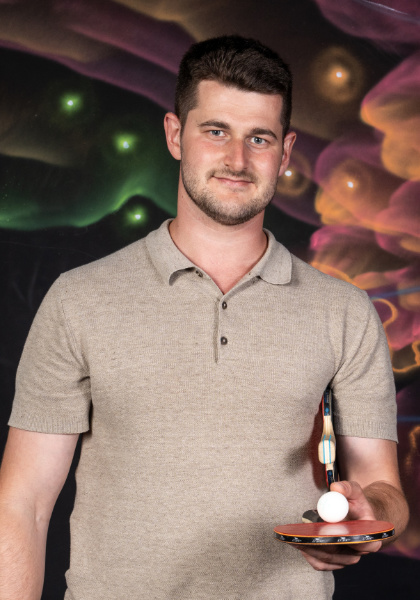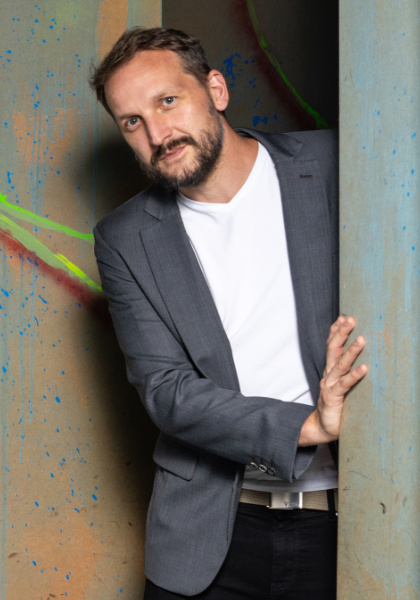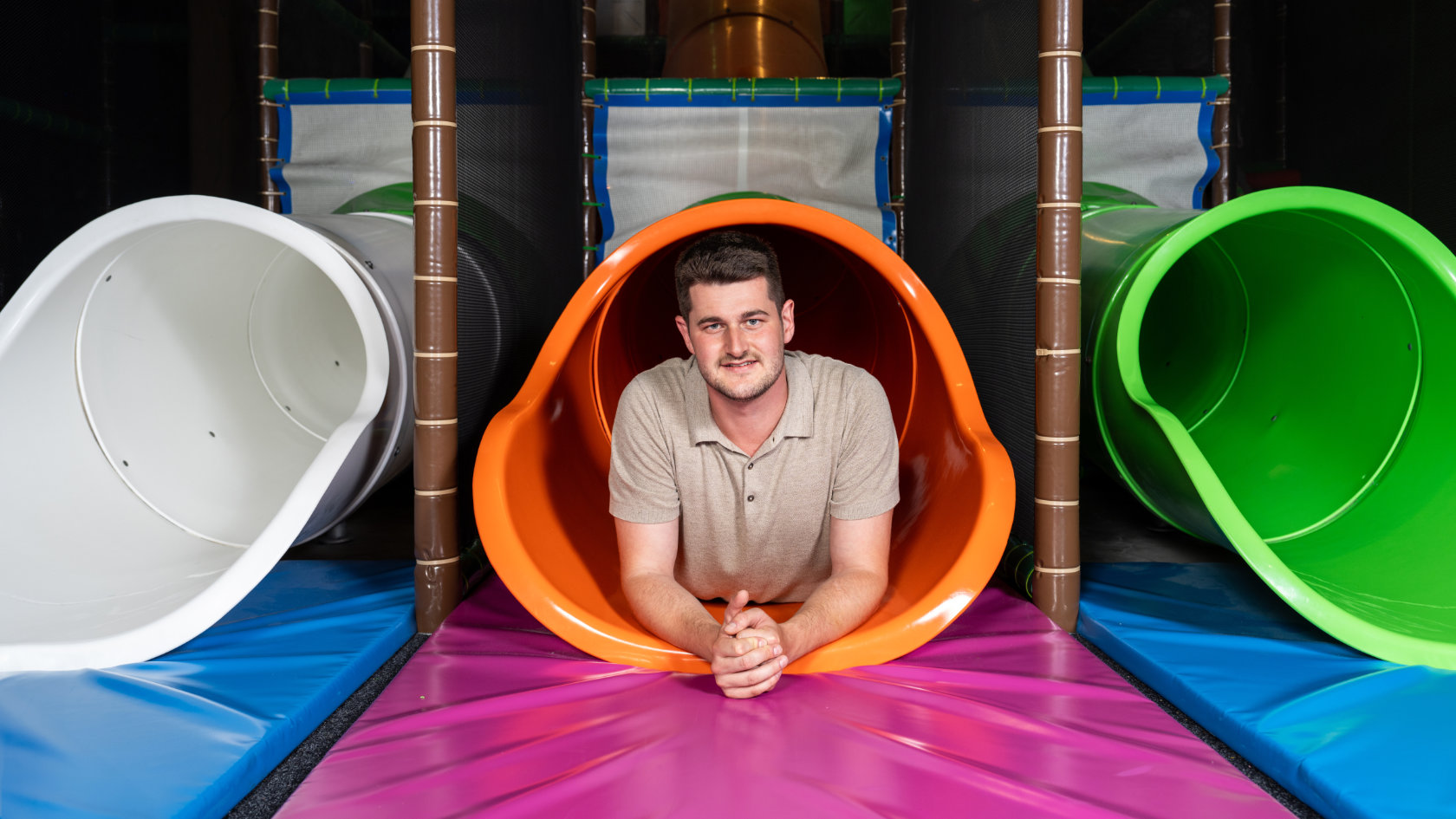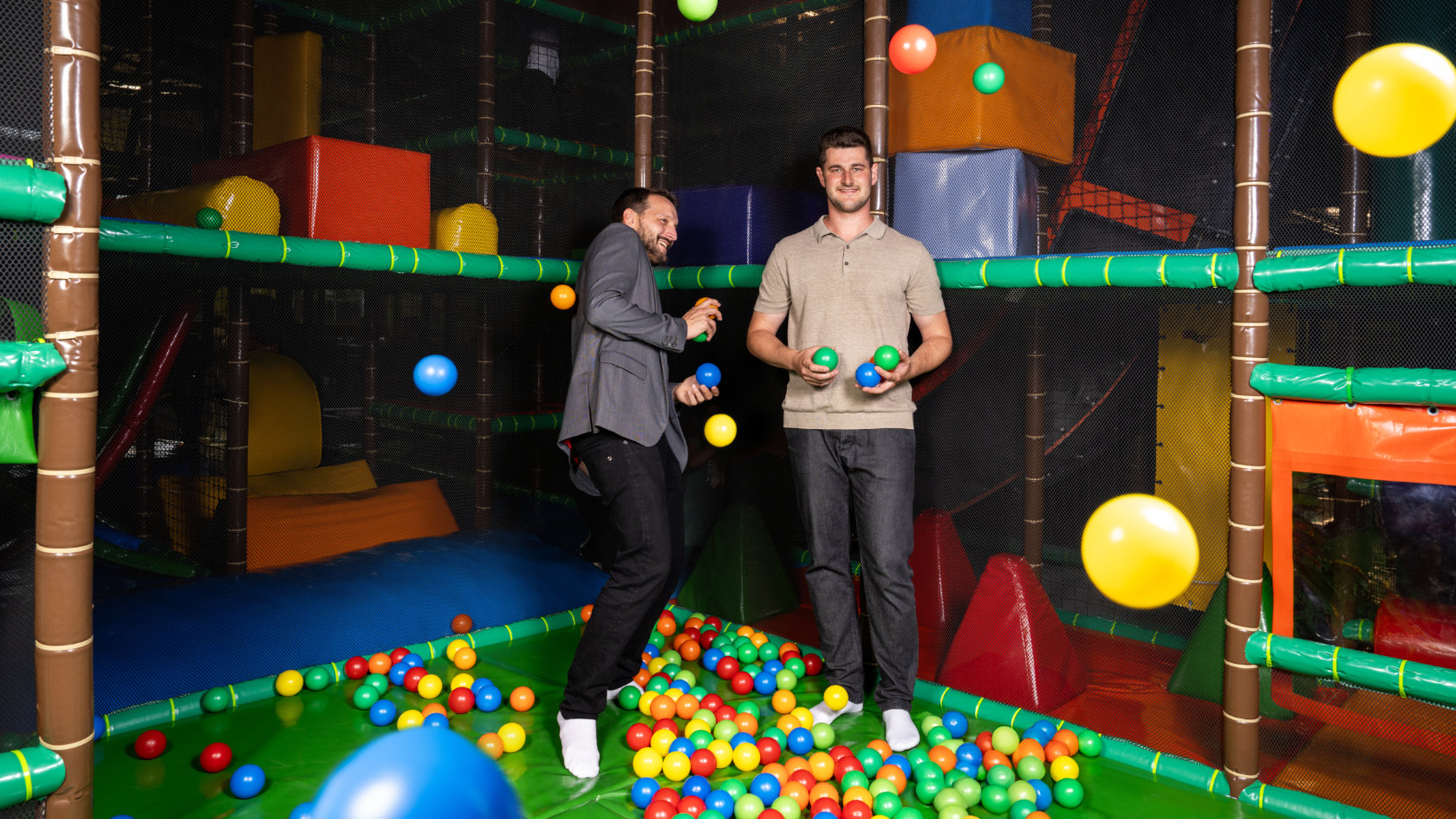Learning from Children
Andri Brühwiler decided to take part in the mentoring program as it was a chance to be immersed in another culture. Over the space of a year, the economics student at the University of Zurich met weekly with a nine-year-old primary school pupil whose parents had fled to Switzerland as Syrian Kurd refugees. Brühwiler helped the boy with his academic challenges. This required empathy to recognize the boy’s needs and to see where he was struggling. But most importantly, Brühwiler needed to understand the boy’s expectations and where he could really help and support him.
It was a steep learning curve for the UZH student. The first thing he realized was that his mentee didn’t have a workspace at home where he could do his homework. So they started by setting one up together. Gradually, Brühwiler won over the young boy’s trust, so he felt comfortable talking to the student about his weaknesses. The boy was struggling with German, a little disorganized, and lacked staying power in his learning.

Mentoring meant I needed skills that I’ve never needed so far at university.
Brühwiler drew on all his skills and experience – both his own journey through the education system and what he had learned at university. Because for students, mentoring young kids is like being thrown in at the deep end – only with a safety net. The mentoring is embedded in a course at the university, with the module Mentoring for the Next Generation introduced at UZH in 2023.
An adaptive and malleable brain
Teaching staff from the subjects education, psychology and economics prepare the future mentors for the task ahead. In the introductory sessions, they share their interdisciplinary knowledge with students, specifically looking at what children need to thrive and what makes for effective mentoring. Their core message is always that our brains are malleable and can adapt. What a child can’t learn today, they might be able to learn tomorrow.
Over the course of two semesters, students also attend several group coaching sessions and engage in optional one-on-one sessions to address any issues.
Above all, however, the aim is for students to acquire new skills when interacting and engaging with their mentees. This is what the course is all about: promoting empathy and self-confidence and developing problem-solving skills.
Educational opportunities for all
The mentoring module at UZH was initiated by the city of Zurich’s asylum organization (AOZ). The organization’s mission is to provide children from socially disadvantaged backgrounds with access to quality education. To this end, it runs the Future Kids mentoring program, which is open to students from various universities and allows them to mentor children and teenagers across the canton of Zurich. There is a great deal of demand for mentors from primary schools, which is why the AOZ asked the University of Zurich if it wanted to get involved, too

Social skills and emotional intelligence are precisely the skills that will continue to be in demand in the jobs market in future as they can’t be replaced by artificial intelligence.
Ulf Zölitz jumped at the chance. The professor at the Department of Economics and at UZH’s Jacobs Center for Productive Youth Development studies these very questions in his research, namely how children can be helped to fulfill their potential and how equality can be improved in education. The professor has already run the mentoring program twice. In each edition, around 30 students from different subject areas at UZH take part – and the program is being run for the third time in the 2025 Fall Semester.
Learn from each other
The course primarily develops participants’ social skills and emotional intelligence. “These are precisely the skills that will continue to be in demand in the jobs market in future as they can’t be replaced by artificial intelligence,” says Zölitz. They are key competencies that are set to become more important in every occupational field, he adds. The course therefore not only appeals to students who are keen to become teachers, like Andri Brühwiler.
In his reflection paper, the economics student describes how the mentoring scheme impacted him. “Mentoring meant I needed skills that I’ve never needed so far at university,” he says. He realized that patience is one of his greatest strengths. “At the same time, I got the chance to practice being flexible and thinking on my feet – things I used to find difficult,” says the 27-year-old. Sometimes, despite meticulous planning, he would have to change his plans at the last minute – if, for example, his mentee had forgotten that he had an exam or presentation the next day and needed help with it.
The children and teenagers were also asked to give regular feedback to students on the kind of support they wanted to receive. The course is an opportunity for students from different subjects to compare notes and share tips, for example on how to motivate their mentees and on the best strategies to help the pupils with schoolwork.
What a difference
Andri Brühwiler was delighted to see how, over the course of the year, his mentee became more confident speaking German and was more motivated and organized with his schoolwork. “It was impressive to see how much of a difference two hours a week can make.” The experience also reminded him of how unequal different people’s educational opportunities are: “My parents always supported me. But not all parents can do that, if only because they don’t have the language skills.”

